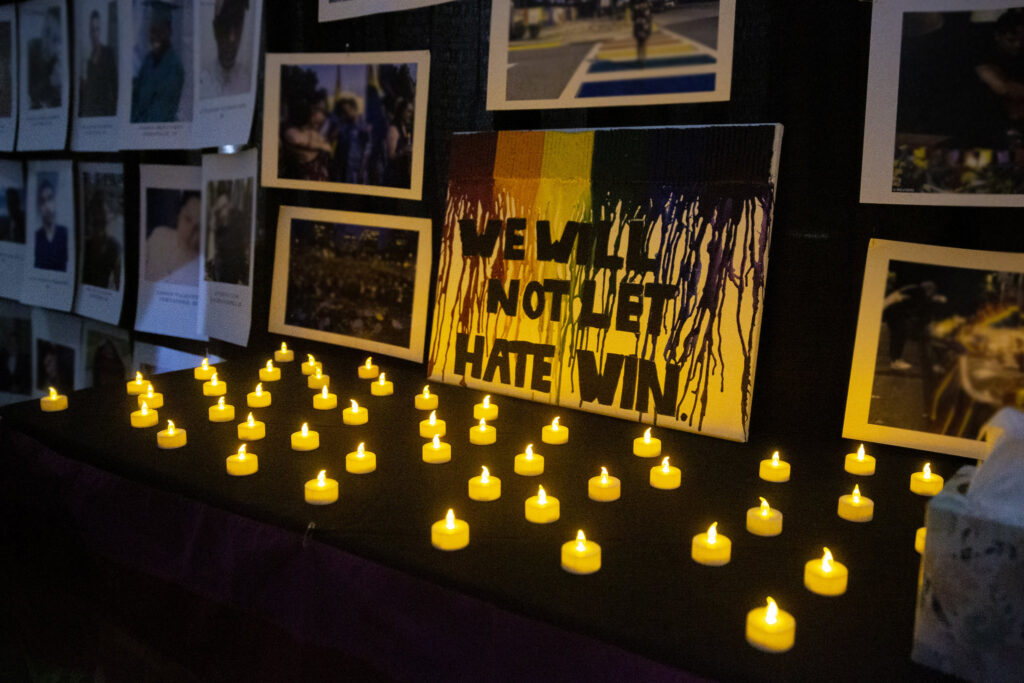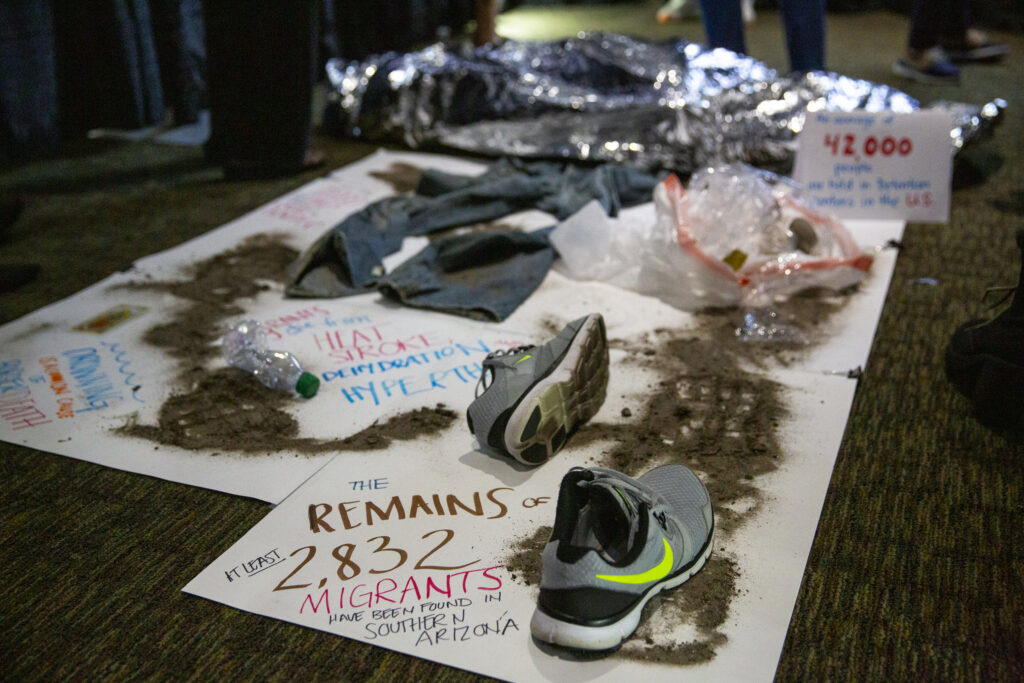“I think we all have empathy. We may not have enough courage to display it.”
– Maya Angelou
These words from the late American poet and civil-rights activist – who actually delivered a speech at Florida Gulf Coast University in 2005 — reflect her belief that we all have the power to truly feel another person’s struggles, if we only take the time and invest the thought to do so.
Thanks to FGCU’s Multicultural and Leadership Development Center, the university community will again get a unique chance to develop the courage Angelou talks about – or at the very least, develop true awareness of the struggles of oppressed people. For the second consecutive year, the center is sponsoring the Tunnel of Awareness. This year’s event, subtitled “From Awareness to Action,” is scheduled Oct. 6-8 in Cohen Student Union 247.
Due to crowd restrictions imposed during the COVID-19 pandemic, space will be limited to no more than five participants per group, with FGCU’s mandatory safety guidelines followed throughout the experience. To register, follow this link.

The Tunnel of Awareness at FGCU highlights issues pertaining to immigration, disabilities and LGBTQIA+, along with farmworkers’ rights and microaggressions. Group leaders guide participants thorough five separate rooms — or exhibits — that each highlight one of those issues from the contexts of identity, diversity, oppression, privilege and power.
Dr. Christopher Blakely, interim assistant vice president of campus life, dean of students and director of the Multicultural and Leadership Development Center, said while the themes are the same as last year, the displays will be different. He notes that while the center coordinates the tunnel, it’s actually a university-wide effort, with each room curated by a different campus organization.
The immigration exhibit, for example, is curated by the Department of Language & Literature; disabilities is curated by Eagles Gather, a student group that raises awareness of issues pertaining to those with special needs, and Adaptive Services; LGBTQIA+ is curated by the Gender & Sexuality Alliance; farmworkers is curated by the Student/Farmworker Alliance; and microaggressions is curated by the Office of Institutional Equity and Compliance and TRIO and Outreach Programs.
In each exhibit, participants are introduced a series of scenes that educate and challenge them to think more deeply about the issues at hand. The exhibits include a combination of written information, multimedia components and interactive activities. At the end of the experience, participants will have the opportunity to be led in a guided discussion about their time in the tunnel.
The tunnel is a national grassroots diversity program on campuses that originated in 1993 at Western Illinois University. Using the Museum of Tolerance in Los Angeles as a model, the tunnel gives people a way to experience discrimination and oppression in a hands-on way. Participants may have never before been in these types of situations, and the goal is to give them a sense of what it might feel like.

FGCU has put its own stamp on the tunnel template, changing the original title – and indirectly its focus — by turning what many colleges and universities call the “Tunnel of Oppression” into one of awareness, hence the “From Awareness to Action” subtitle.
“Through our event, we hope to alter people’s perceptions,” Blakely said. “The goal is to illuminate things in order to facilitate change.”
Lady Gonzalez, a junior chemistry major from Cuba who now lives in Naples, was unable to attend last year’s tunnel, but knows about its purpose. She plans to tour the exhibit this year.
“From what I understand, it gives a really wide perspective on the issues … creates more sensitivity,” Gonzalez said. “When you talk about a topic, you should really be able to understand what others are going through. Just because you personally don’t experience something doesn’t mean that it doesn’t affect other people. Others have told me (the tunnel) is quite a life-changing, eye-opening experience. It sounds really cool.”
Tour times are from 3:30 to 7:30 p.m. Tuesday, Oct. 6; from 9 a.m. to 7:30 p.m. Wednesday, Oct.7; and 9 a.m. to 2 p.m. Thursday, Oct. 8. Each tour takes about 30 minutes.
Addressing the goal to “facilitate change,” as Blakely put it, those who tour the tunnel will also have an opportunity to participate in a recap meeting at noon Oct. 14 in Cohen Student Union 201 and via Zoom. Participants will discuss their thoughts, ideas, impactful impressions and, most importantly, how awareness can be used to create action in the focus areas.